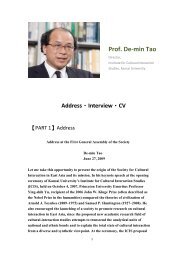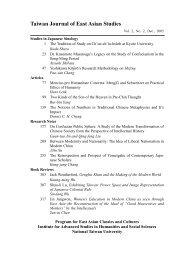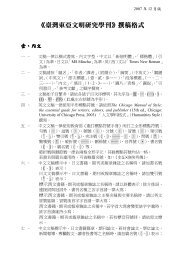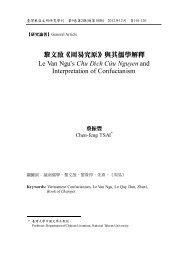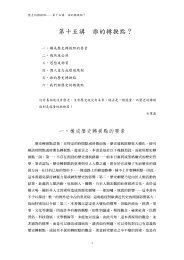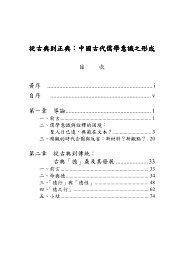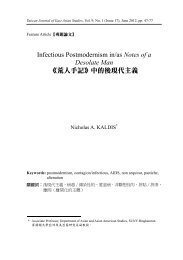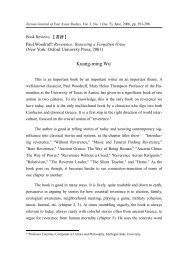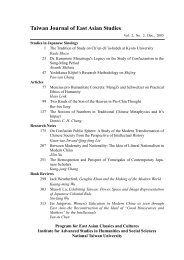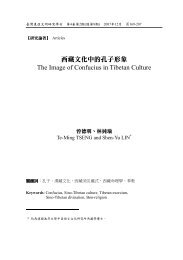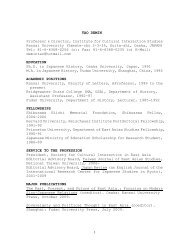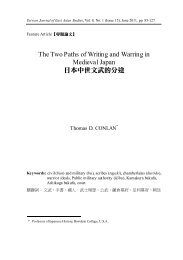臺灣東亞文明研究學刊 - 東亞經典與文化研究計畫 - 國立臺灣大學
臺灣東亞文明研究學刊 - 東亞經典與文化研究計畫 - 國立臺灣大學
臺灣東亞文明研究學刊 - 東亞經典與文化研究計畫 - 國立臺灣大學
Create successful ePaper yourself
Turn your PDF publications into a flip-book with our unique Google optimized e-Paper software.
230 Taiwan Journal of East Asian Studies, Vol. 4, No. 2 (Iss. 8), Dec., 2007<br />
parliament withdrew their political and diplomatic support, leaving the Scots<br />
expeditionary force at the mercy of a hostile Spanish army. The expedition<br />
collapsed, with disastrous consequences for the Scottish economy, painfully<br />
demonstrating the vulnerability of the Scottish state. It was an experiment that<br />
showed that in a militarised and commercialised world small nations would only<br />
survive as sovereign states if they possessed the sort of political, military and<br />
commercial resources Scotland so conspicuously lacked or if they enjoyed the<br />
protection of a great power. One or two Scots speculated longingly on the<br />
possibility of uniting their country with the Netherlands but most realised that in an<br />
increasingly imperial and militarised Europe their future would depend on a<br />
renegotiated union with England which would regularise relations between the two<br />
kingdoms and offer Scottish merchants access to English markets at home and<br />
overseas. What gave the question political urgency was the death of the heir to the<br />
English and Scottish thrones, and the prospect of a disputed succession and civil<br />
war. There were powerful political interests in both countries set on negotiating a<br />
new Union which would secure the protestant succession and regularise a politically<br />
troublesome union. The question Scots now faced, the question Andrew Fletcher<br />
was to address with clarity and a sense of urgency, was whether it was possible for a<br />
small European state to secure the military and commercial resources needed to<br />
secure its independence without paying a political price that would subvert the<br />
independence a better regulated Union was intended to preserve. So far as Fletcher<br />
was concerned, these were problems that could only be understood and managed<br />
through a better understanding of the recent history of the European state system.<br />
His achievement was to develop a view of European politics which was to play an<br />
important part in shaping the public culture of Scotland during the long eighteenth<br />
century.<br />
Fletcher was a wealthy, radical, bad-tempered Scottish country gentleman who<br />
knew Europe well as a mercenary and as a political exile. He was also a highly<br />
intelligent, formidably learned political analyst. A close and critical reader of<br />
vi



